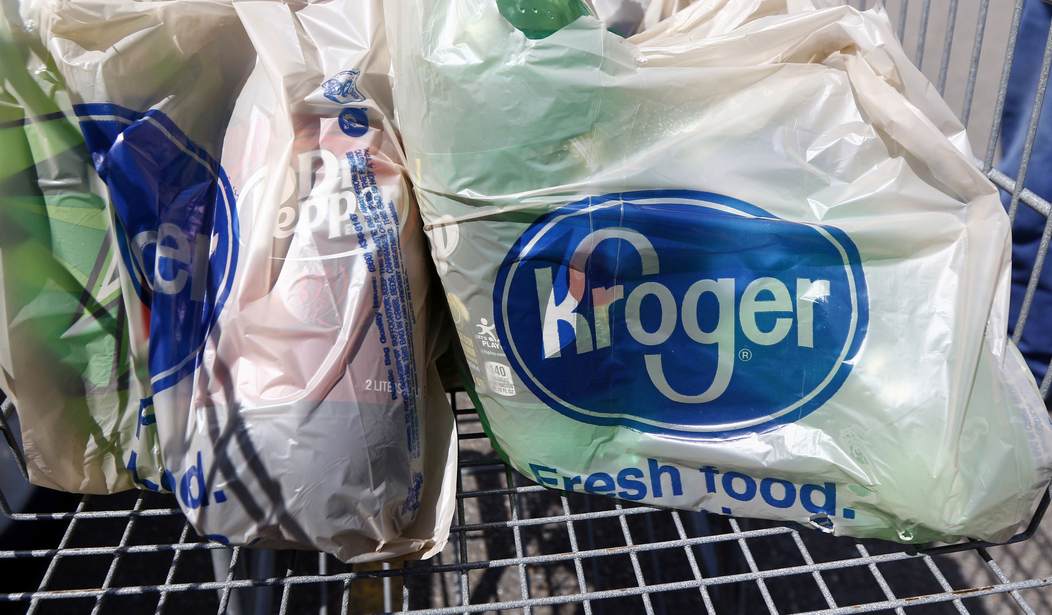Here in New Jersey, residents were warned for weeks ahead of the implementation of a May 4, 2022, ban on single-use plastic and paper bags—the strictest in the nation, according to USA Today. The choice was to bring your own reusable ones or buy them at the checkout lane, which continues to be an annoyance nearly four months out. Gone are the days of lining your wastebaskets with your old grocery bags, using them for pet waste, or any number of other ways they were reused. But beyond the inconvenience, there's been an unintended consequence stores are now dealing with.
A major rise in theft is taking place. No, not of products—we're not as bad as California just yet. But people are now taking the handheld shopping baskets with them.
"They are just disappearing," Louis Scaduto Jr., chief executive officer of Food Circus Super Markets, told USA Today. "I may actually have to just do away with them soon, can't afford to keep replacing them."
The same is true elsewhere in the Garden State.
"Like other retailers across the state, we have experienced theft of our handheld shopping baskets – an unintended consequence of the ban on plastic and paper bags," Stop & Shop said in a statement to the paper.
Recommended
Beyond the theft, the other major negative is that the ban may have the opposite effect on the environment than what Democrats hoped.
According to one analysis, the plastic bag bans led to a 120 percent increase in people purchasing small, 4-gallon garbage bags.
"So about 30 percent of the plastic that was eliminated by the ban comes back in the form of thicker garbage bags," according to University of Sydney economist Rebecca Taylor.
Reusable cloth bags aren't that great, either.
A 2011 study by the U.K. government found a person would have to reuse a cotton tote bag 131 times before it was better for climate change than using a plastic grocery bag once. The Danish government recently did a study that took into account environmental impacts beyond simply greenhouse gas emissions, including water use, damage to ecosystems and air pollution. These factors make cloth bags even worse. They estimate you would have to use an organic cotton bag 20,000 times more than a plastic grocery bag to make using it better for the environment.
That said, the Danish government's estimate doesn't take into account the effects of bags littering land and sea, where plastic is clearly the worst offender. (NPR)
What the ban really comes down to then is Democrat virtue signaling, as usual.

























